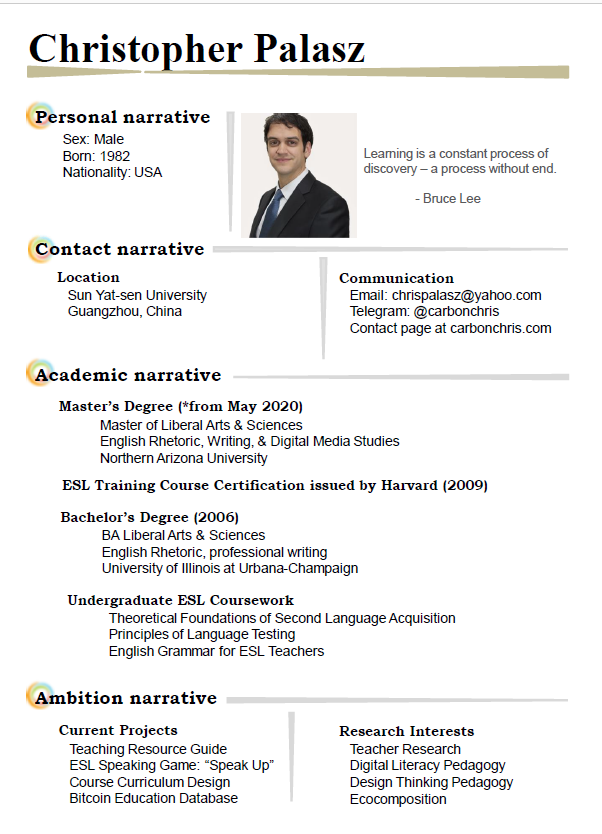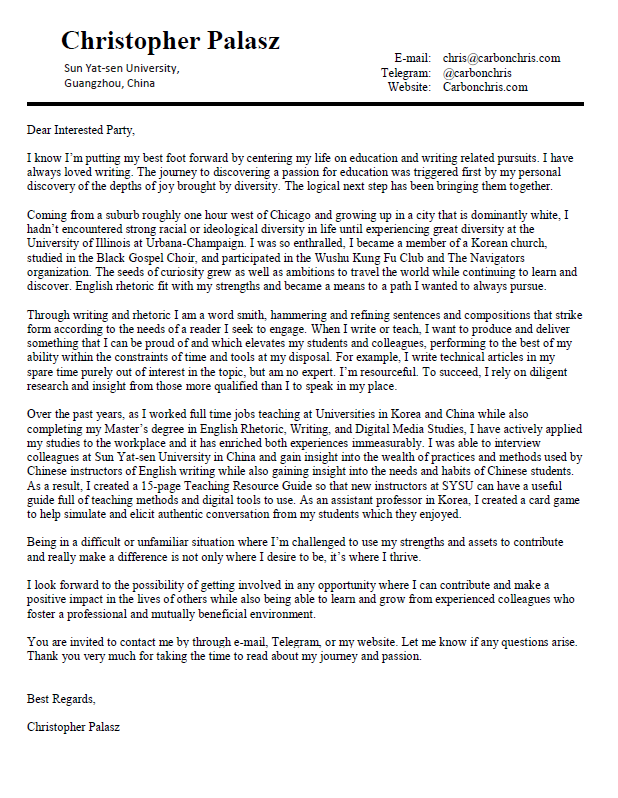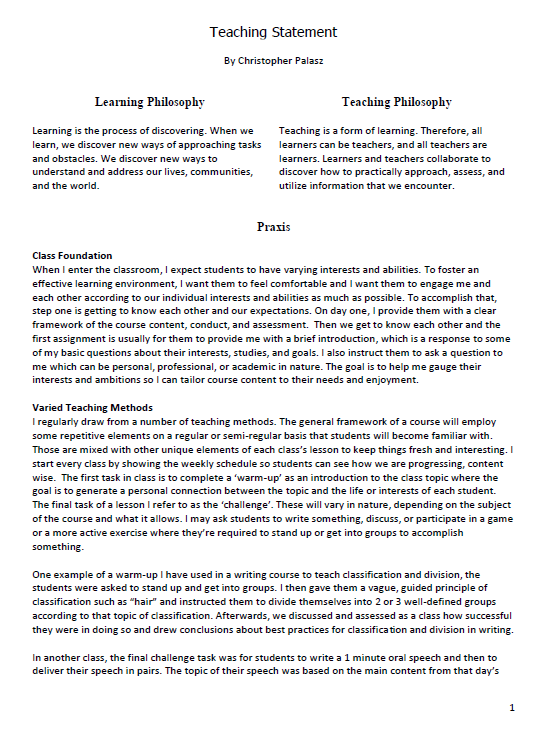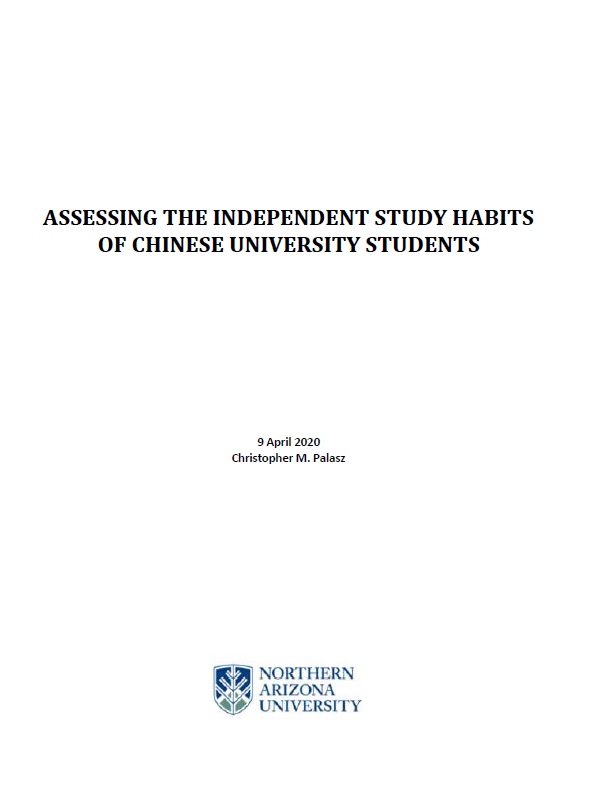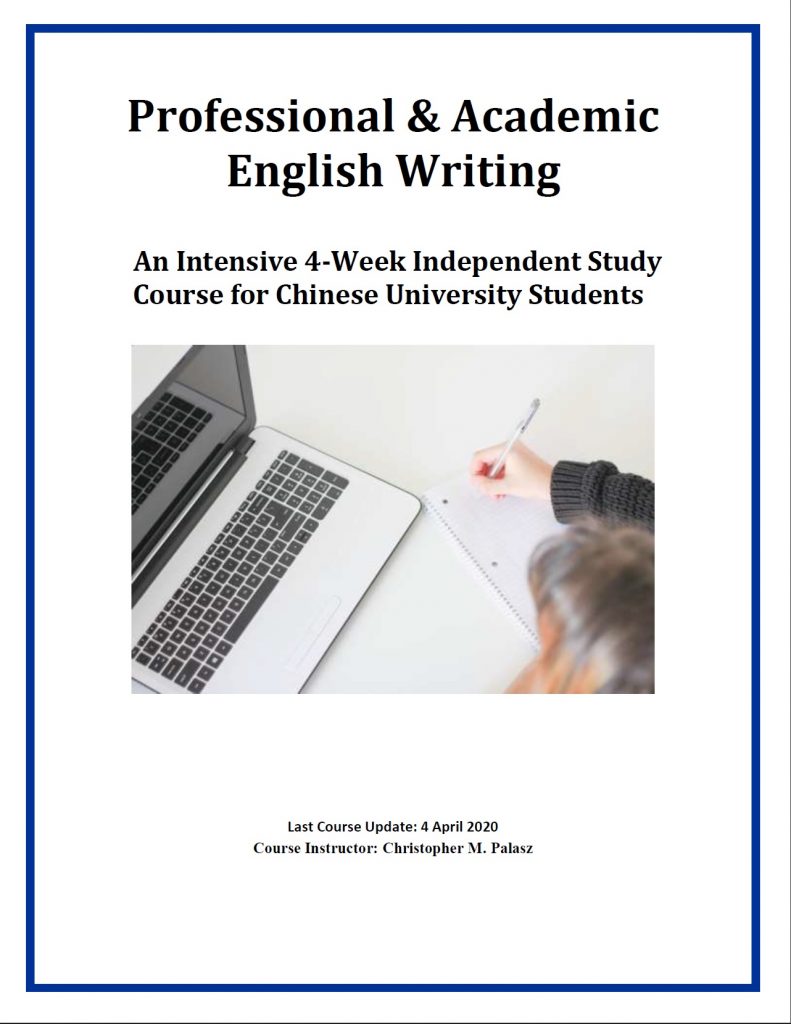Christopher Palasz
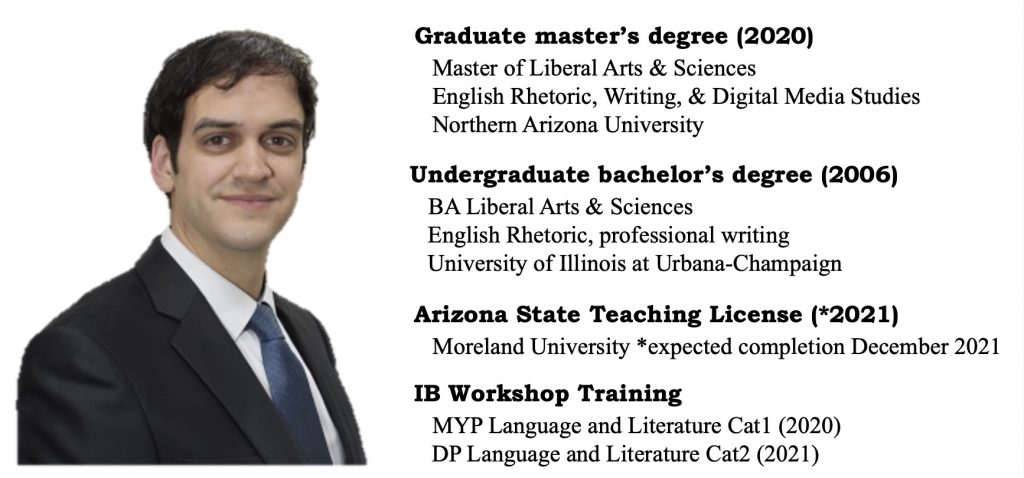
Introduction
I currently teach English A: Language and Literature to MYP (Middle School) and DP (High School) students at an IB (International Baccalaureate) school in Guangzhou, China, and am pursuing a USA teaching license (to be completed in the winter of 2021).
Intro: The Impact of Computers in the Classroom
Learning Environment Plan (LEP)
This document was created with guidance and feedback from the TeachNow Program through Moreland University.
Leadership and collaboration project
View my Leadership Project Proposal
This leadership project is a professional development group on Facebook. IB Educators around the world are encouraged to share content they would use in their classroom and engage in discussion with other IB Educators around the world to simulate an international IB classroom discussion. The purpose is to encounter differing views and ways of looking at content using ideal students we would hope to see in our classrooms, and to identify aspects of our content which we could alter or abandon for improving lessons.
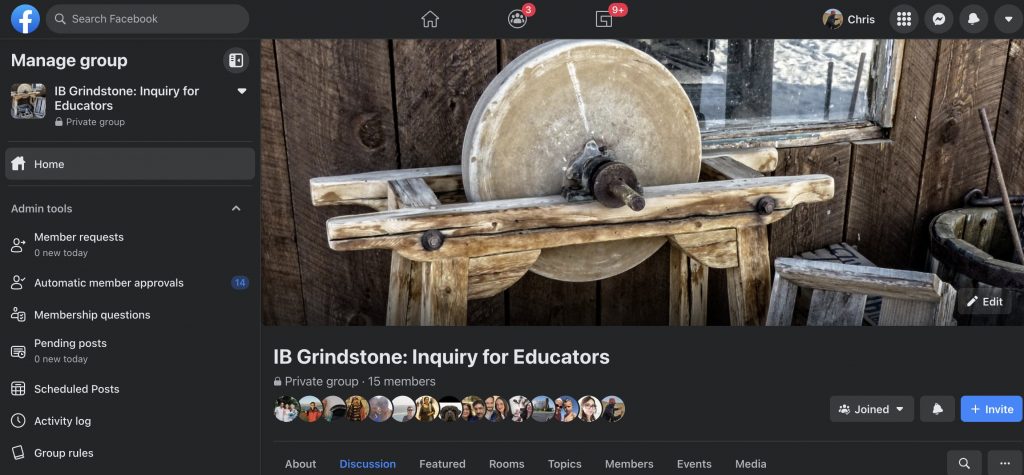
Moreland University: Scavenger Hunt
Click here to see the Module 8 Scavenger Hunt evidence of completion!
English Rhetoric
Aristotle’s famous definition of rhetoric is having the ability to identify all available means of persuasion. I explain modern English rhetoric as the ability to use English efficiently and effectively to accomplish your goals – whatever those may be. The modern academic study of English Rhetoric in Composition takes a look at rhetoric in history, in the news, in literature, in social media, and in everyday encounters – and more than that. The visual rhetorics of art, photography, architecture, and design are explored – and more than that. The rhetoric of silence, of listening, of tradition, and of culture are explored. Modern academic rhetoric pushes the boundaries of even the depths of its influence conceived by Aristotle and other great, ancient rhetoricians.
This professional portfolio reflects my own interests, studies, and pursuits into the discovery and practice of rhetoric, and how I can use it to contribute to the world.
Resume / Cover Letter / Teaching Statement
View Public Resume: This Public Resume covers basic personal information, relevant education, research interests, and relevant work history of more than 12 years.
View Public Cover Letter: This Public Cover Letter is meant to reflect on interests, motivations, and qualifications related to education, rhetoric and writing.
View Public Teaching Statement: This Public Teaching Statement conveys the personal style and driving thrust of Christopher Palasz’s approach to education, teaching philosophy, and course management.
MA Research and Application Project
Assessing the Independent Study Habits of Chinese University Students
Executive Summary:
A qualitative research study was conducted by collecting information from Chinese instructors in China who teach English writing to University students. The information is related to their expectations that they have for their students, and the struggles exhibited by their students in meeting those expectations. Amidst the COVID-19 pandemic disrupting societies worldwide, schools in China closed for months. Chinese university students who were accustomed to learning on their own were at a loss without a guided curriculum to follow. A 20-question survey consisting primarily of multiple choice questions was created and sent out via social media directly to Chinese university students. The purpose of the research was to provide information to instructors so that guided educational material could be developed for students to have and study during their self-regulated learning at home. Questions were designed to collect information about their self-study habits and preferences. The study resulted in 807 university students participating. The majority of students surveyed indicate that they would spend a minimum of 3 hours per week studying independently, that they enjoy it and learn a lot. While many do study using a computer, most prefer using a paper textbook. The collected surveys provide subjective data about the habits and preferences of Chinese university students during their self-regulated studying. This data effectively informed the creation of an intensive academic English writing course that targets Chinese students.A qualitative research study was conducted by collecting information from Chinese instructors in China who teach English writing to University students. The information is related to their expectations that they have for their students, and the struggles exhibited by their students in meeting those expectations.
Professional & Academic English Writing is a self-study course developed for Chinese
University students who fit one or more of the following descriptions:
(a) Might study abroad at a University in a native English-speaking country
(b) Plans to or would like to write academic essays for the purpose of being published, some day
(c) Is self-motivated to improve English writing skills and would like to enhance professional and academic writing ability
(d) Needs to prepare for an intensive academic English writing course at a University
(e) Has a strong interest in practicing and developing professional and academic English writing and wants more guidance and structure than self-studying alone can accomplish
Course Style, Foundations, and Flexibility
The style of this course is meant to provide guidance, instruction, and practice that mimics a Western style of University English writing education. It was designed to utilize the strong self-study habits of Chinese students and to target their common struggles in English writing.
This course relies on students to design conditions that will ensure successful completion of this course such as self-designed motivating factors, a comfortable working space, planned time management and emotional management as necessary, and honest self-reflection and self-assessment of the work that is produced.
This course will incorporate elements and exercises that attempt to simulate skills required for real academic writing preparedness.
This course will employ process writing and project-based learning pedagogy.
The foundations that inform the creation and development of this course are three-fold:
i. Research conducted via surveying more than 800 Chinese University students and gathering data about their self-study habits.
ii. Research in the field of English Rhetoric regarding multiple literacies, writing across
disciplines, and academic writing practices.
iii. Research on the psychology of Self-Regulated Learning strategies that lead to the
development of successful self-learning habits and practices.
Projects / Articles / Blog posts

SYSU Teaching Resource Guide: This is a teaching guide for Sun Yat-sen University that was created to inform new instructors about the context and circumstances of teaching English at this university in China. It is complete with basic information about this university, the campuses, classrooms, students, as well as teaching methodologies, exercises, and online tools that can aid the teaching process. (View Teaching Guide)
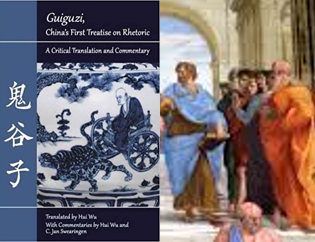
Rhetorical Silence in Digital Media: An Ancient Tool for Modern Use: This essay is an unpublished version of a major essay written about silence as a rhetorical tool. The thrust of the article involves analysis and discussion of ancient Greek and ancient Chinese writings and how silence can be a rhetorical tool for persuasion. (View Essay)
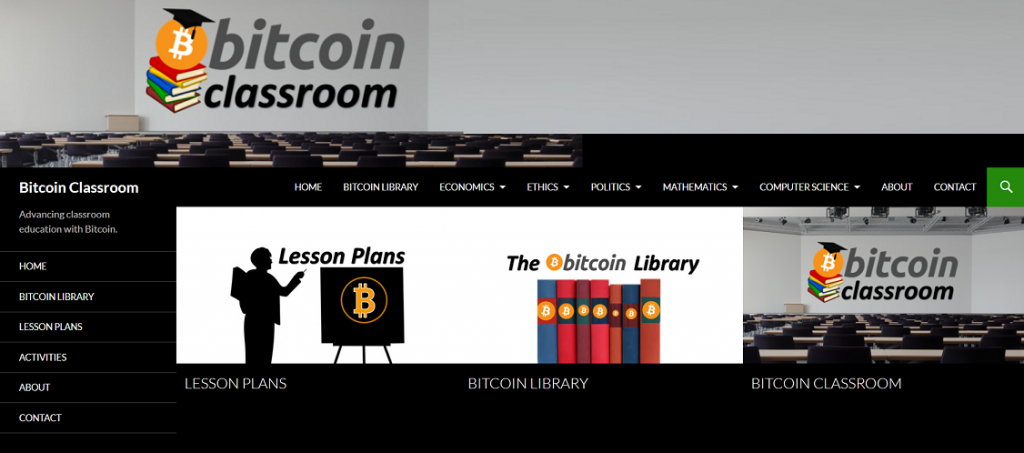
Bitcoin Classroom: The ‘Bitcoin Classroom’ website is the skeleton model of a project proposal which I plan to revive and flesh out in the coming years. The vision is to provide classroom teaching materials that allow educators to incorporate Bitcoin as an example, comparison, or teaching tool while teaching about any related topic. The hope is that Bitcoin education can slowly be implemented into classroom teaching and commonly understood by students and educators. (View Website sample)
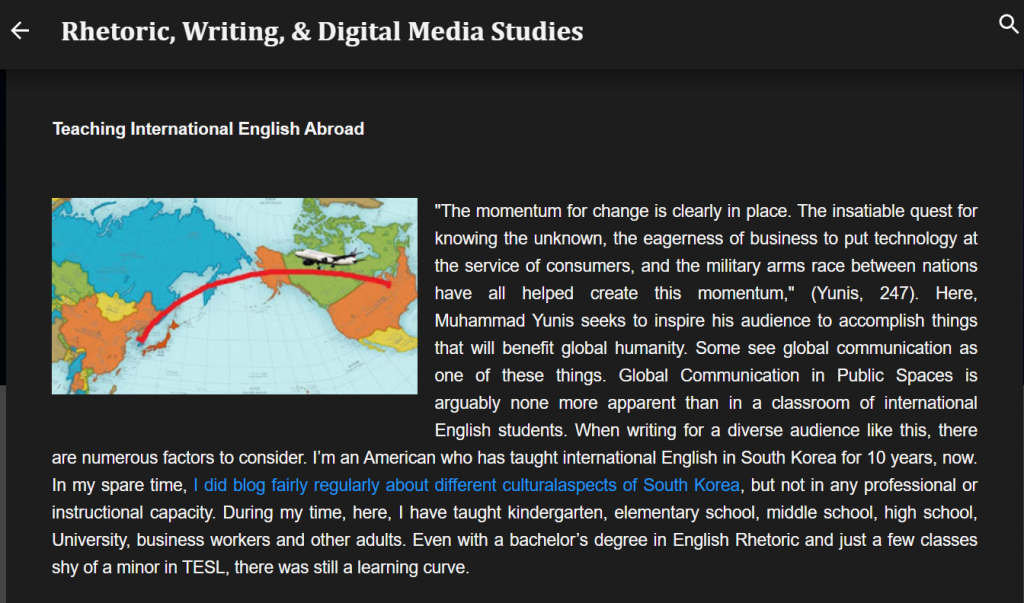
Global Communication & The International Classroom: This blog article focuses on the adjustments that need to be made when native English speakers venture abroad to teach English as an international language. In particular, it discusses the globalization of English and how the meshing of Englishes impacts the away a native English speaker needs to approach teaching English abroad. (View Blog Article)
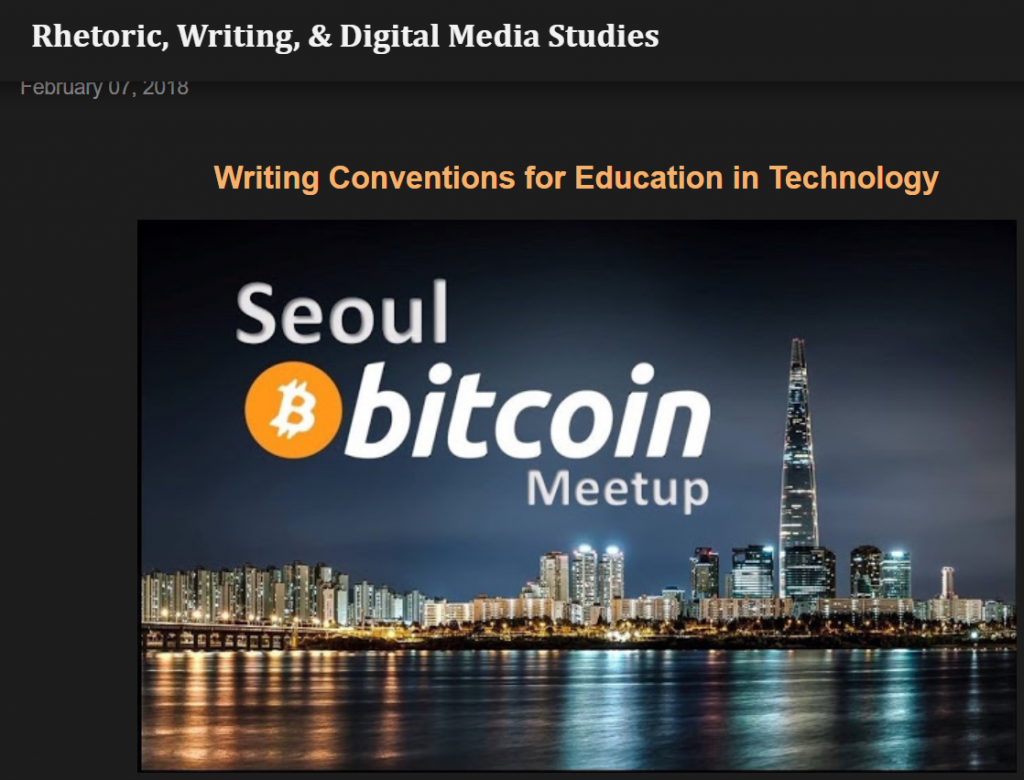
Writing Conventions for Education in Technology: This blog article is about writing conventions used for education in technology focuses on the global community of Bitcoin users and advocates, and the mediums of writing and modes of communication that are used to spread and exchange their ideas. (View Blog Article)
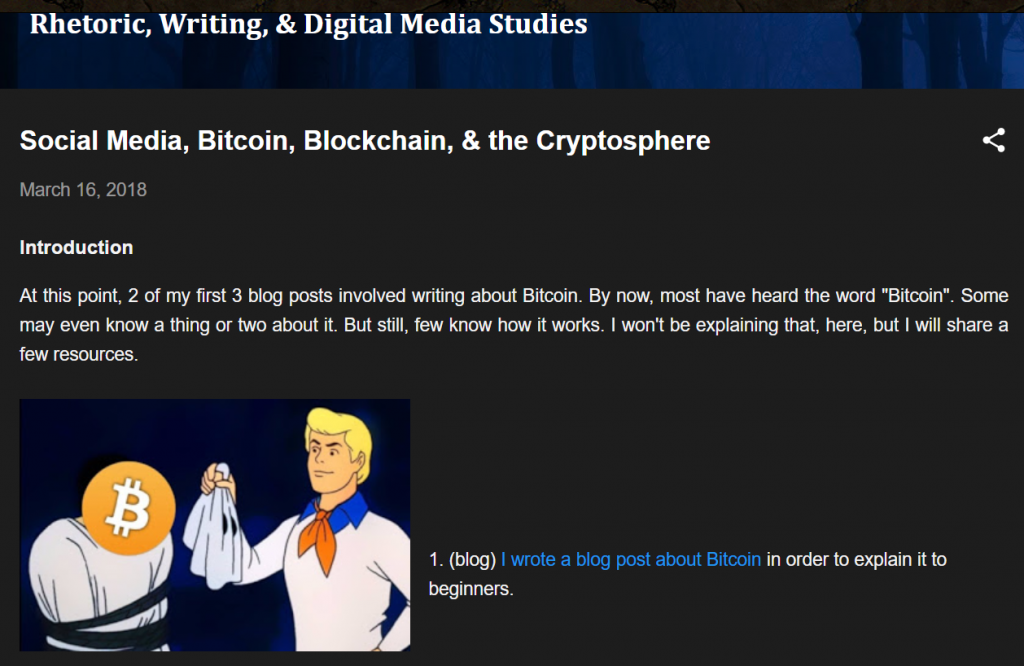
Social Media, Bitcoin, Blockchain, and the Cryptosphere: This blog article delves into the integral role that social media has played in the communication, spread, and exchange of ideas within the global community of Bitcoin users and advocates. (View Blog Article)
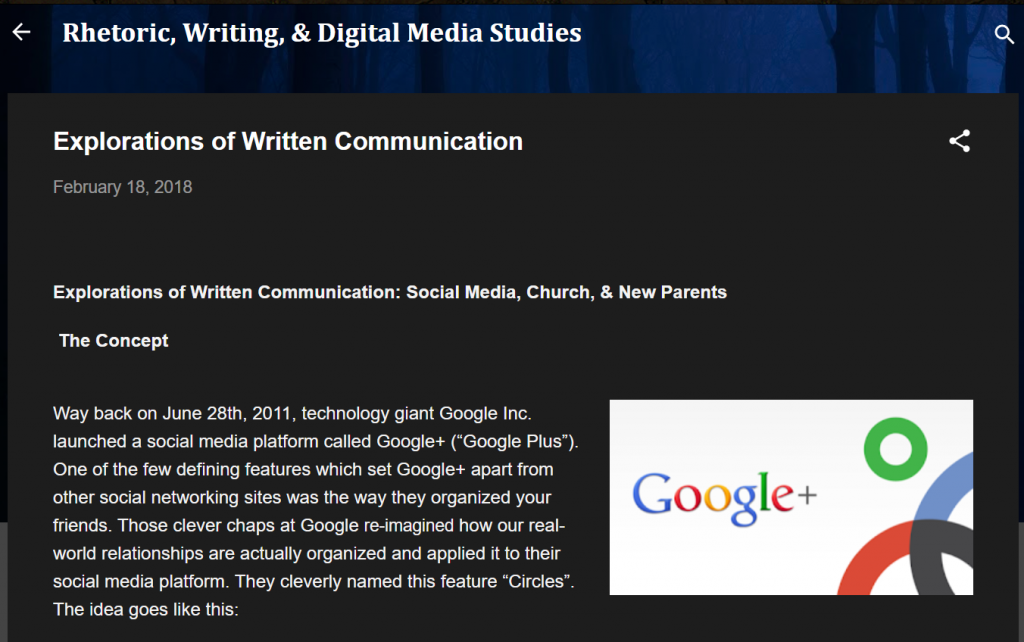
Exploration of Written Communication: This blog article is an analysis of the successful and unsuccessful approaches and aspects to written communication. Two examples are analyzed, one which is primarily successful, and one which has not been successful. (View Blog Article)
Completed MA Courses in Rhetoric, Writing, and Digital Media Studies
- ENG 560: Introduction to Literary Theory and Criticism
- ENG 561: Introduction to Rhetoric, Writing and Digital Media Studies
- ENG 562: Introduction to Rhetoric and Composition Theory
- ENG 622: Topics in Historical and Contemporary Rhetoric
- ENG 623: Topics in Historical and Contemporary Rhetoric
- ENG 624: Topics in Public and Disciplinary Writing
- ENG 626: Topics in Digital / Social Media Studies
- ENG 573: Writer’s Creative Process
- ENG 622: History of Rhetoric
- ENG 563: Introduction to Research Methods in Rhetoric and Composition
- ENG 686: Research Projects
Total Credit Hours: 36
Social Media Accounts
- LinkedIn Profile (for professional use)
- Instagram (for private use: travel photos)
- Facebook (for private use: family/friends)
- Twitter (for private use: Bitcoin)
- WeChat (for private use: family/friends)
- Douyin & TikTok (for private use)

